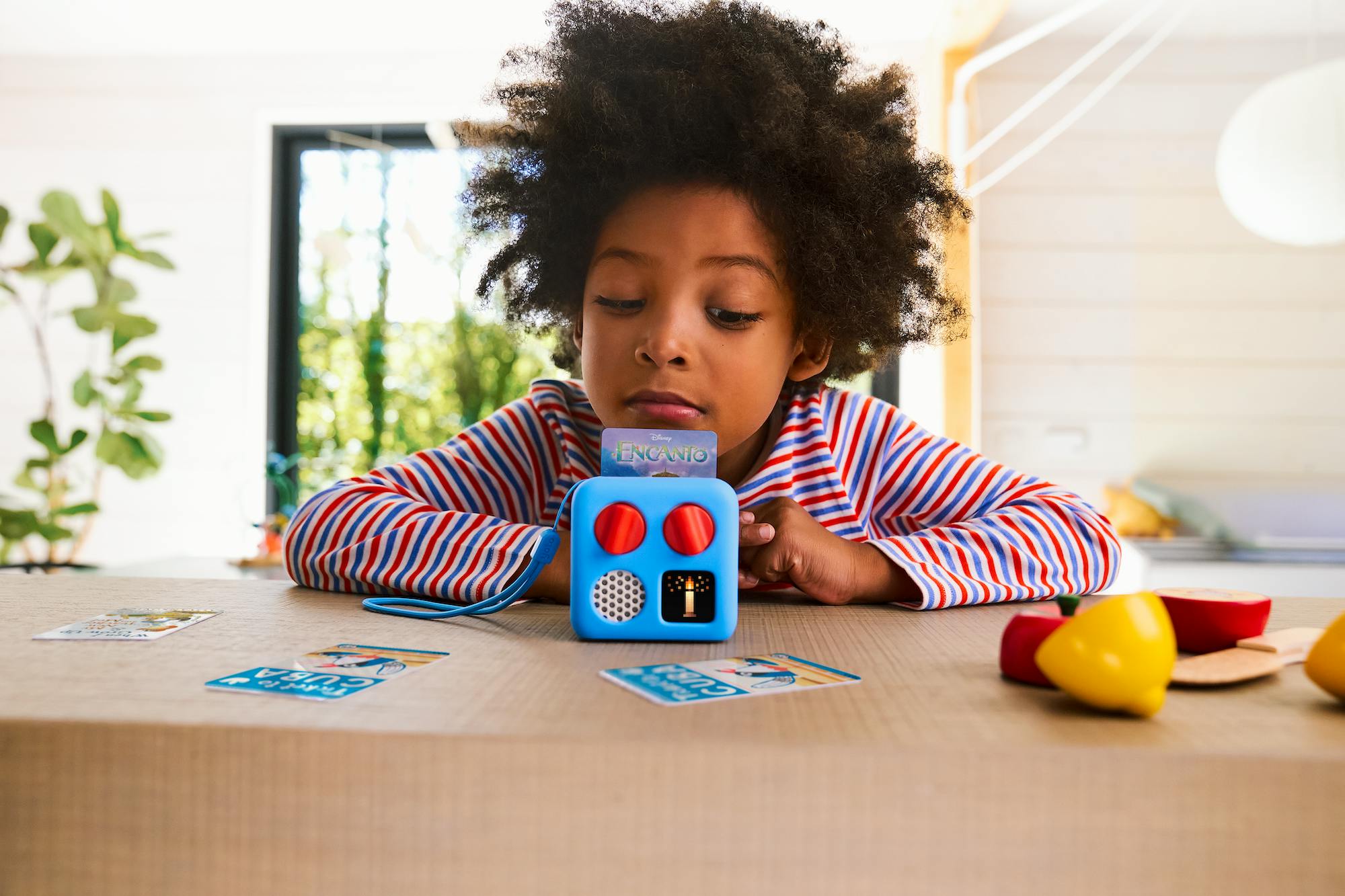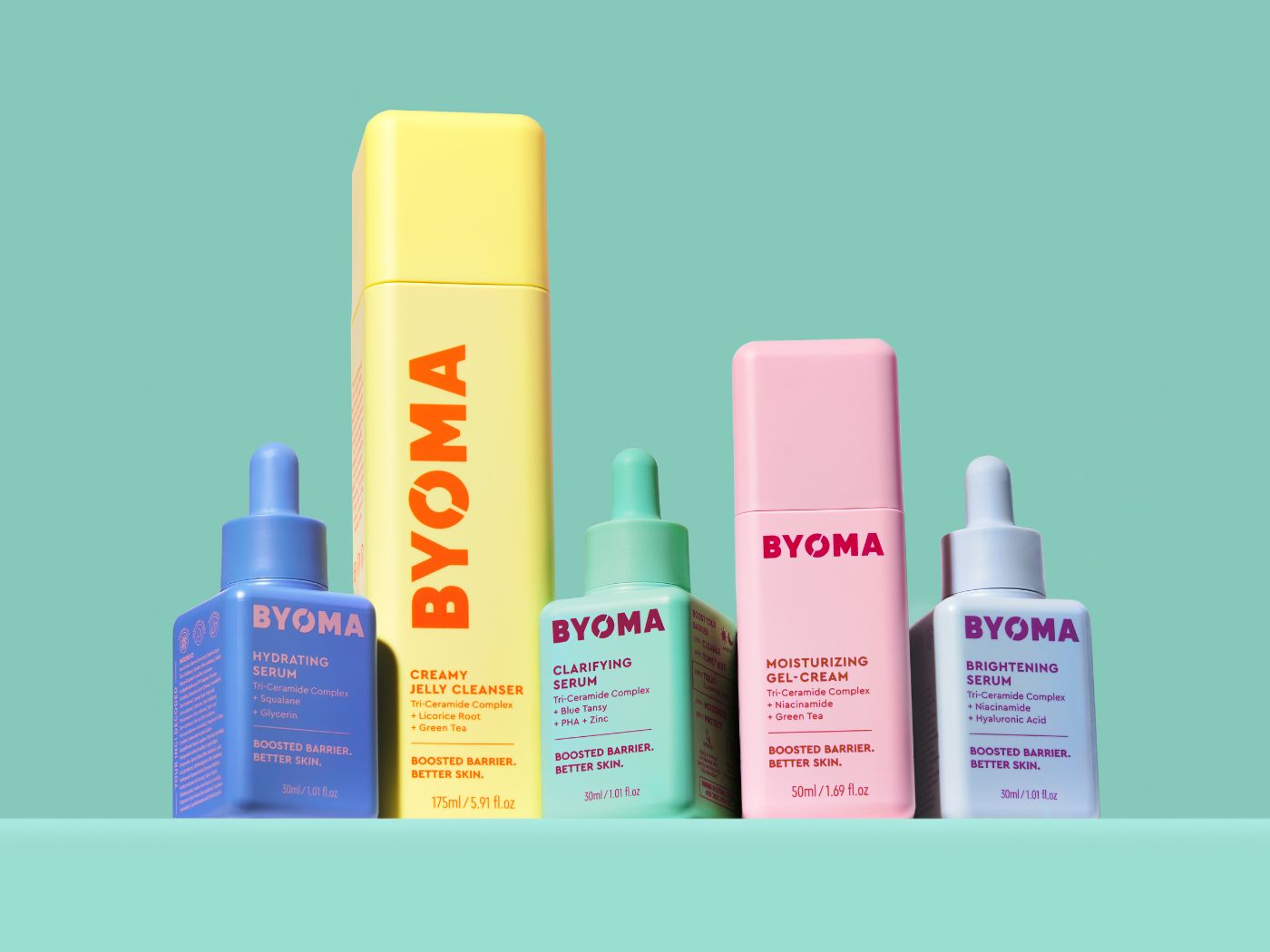When Melissa Fuentes thought about Christmas gifts for her 9-year-old daughter, Tatiana, she expected to buy Barbies, Bratz dolls, or a scooter—items that were common under her own tree in the ’90s. However, something surprising topped the list this year: skincare.
“I never imagined I’d be buying moisturizer for a child,” Fuentes, 31, from Coral Springs, Florida, told. “There’s this obsession with moisturizing… that’s all she’s really into right now. Cheerleading and taking care of her face.”
Fuentes isn’t alone in this new trend of shopping for skincare products for kids. In an era where TikTok and YouTube have replaced traditional TV for America’s youngest consumers, kids are adopting skincare routines like never before, influenced by online content from so-called “Skinfluencers,” experts say.
Many children from Generation Alpha, born in 2010 and later, are becoming budding experts in serums, toners, moisturizers, and sunscreens. Eager to emulate the cool teens they see on social media, some of these kids know more about skincare ingredients than their parents do.
As this new generation of skincare enthusiasts begins to flood the beauty aisle, new brands catering specifically to Gen Alpha are emerging, and retailers are capitalizing on what parents describe as an obsession.
During this year’s crucial holiday shopping season, Gen Alpha’s fascination with skincare is expected to drive significant sales.
“We know from some of our proprietary research, as we enter into the holiday season, that skincare is one of the categories that is at the top of their list,” said Ulta Beauty’s chief merchandising officer, Monica Arnaudo, speaking about the Gen Alpha consumer.
Walmart has expanded its beauty department’s price points, adding a “Beauty Finds” display with makeup, skincare, haircare, and other items priced at $3, $5, or $9. The retailer also offers prestige brands through a new partnership with British beauty retailer SpaceNK.
Brands like Bubble and e.l.f. Beauty, which have gained popularity among young consumers through TikTok, are also expecting strong holiday sales from parents shopping for their Gen Alpha kids.
“We definitely see it on TikTok. A lot of kids are posting their holiday wish lists, and we’re getting tagged very often,” said Shai Eisenman, founder and CEO of Bubble, in an interview.
Tarang Amin, CEO of e.l.f. Beauty, noted that the growing interest in skincare among young people is one of the reasons the company has invested in the category, including through its recent acquisition of skincare brand Naturium.
“It’s never too soon to take care of your skin, particularly with sun protection,” Amin said.
Generation Alpha’s interest in skincare aligns with trends among millennials and Gen Z, who have also become more focused on skincare in recent years—a shift that many attribute to the Covid pandemic, which led people to wear makeup less frequently and focus more on self-care.
Between 2019 and 2022, annual spending on prestige skincare products grew from $6.6 billion to $8 billion, according to Circana. As of September, spending in 2023 was up 14% compared to the same period the previous year.
Mass-market skincare sales also saw growth, rising from $7.8 billion to $9.2 billion between 2019 and 2022, with a 10% increase in spending in 2023 as of September.
While Piper Sandler’s most recent teen spending survey, with an average respondent age of 15.7, showed a 19% year-over-year increase in skincare spending to an average of $122, the impact of Generation Alpha on the skincare market is still emerging. This rise is 16% higher than the multi-year average.
Salt Lake City dad Rick Aaron is not surprised. His daughters, Allie, 15, and Katie, 13, have been diligent about their skincare routines since they were 10 and 8 years old, respectively.

“My wife recently bought a mini-fridge to store all her and the girls’ skincare products, saying they need to be refrigerated to prevent deterioration at room temperature,” said Aaron, 45.
“But then she suggested we might need a second mini-fridge just for skincare products.”
When asked how much he spends on his daughters’ skincare each month, Aaron said he doesn’t know—and doesn’t want to.
“Between the subscriptions, Amazon purchases, and store buys, it’s probably close to, if not over, $1,000 a month,” Aaron said. “I’d probably break down in tears if I actually saw a hard figure on it.”
In the bright white lights of the bathroom she shares with her mom, 7-year-old Marley-Rose addresses her camera as she prepares for her nightly skincare routine.
“Hey guys, it’s me, Marley, and today I’m doing my skincare routine,” Marley says in a video filmed last month.
With her hair neatly pulled into matching buns, Marley shows off her Youth to the People superfood face cleanser, a moisturizer from the same brand, and a Laneige toner before she begins cleansing and moisturizing her face.
“I’m going to do it upwards because if you do it downwards, your face is gonna be droopy at an early age,” Marley explains as she applies the toner.
Two minutes later, Marley ends the clip with a smile and says she’ll be back soon for her next skincare routine.
“I just never imagined that at 7 years old she’d come to me asking about skincare and wanting to buy it,” Marley’s mom, Karla Joseph, 41, told in an interview.
Joseph said Marley became interested in skincare last month after watching a TikTok video of a teenager doing her routine. After getting her own products, Marley now has a morning and night ritual and shares videos of it on social media.
“It’s a different time, you know? They’re on their phones, they’re on the internet, and they see all this stuff and want to try it,” Joseph said. “I kind of just have to roll with it because this is what they’re exposed to.”
For her eighth birthday last weekend, Joseph took Marley to Sephora and is already planning to buy her daughter a variety of skincare items for Christmas.
Joseph believes her daughter’s interest in skincare is “great,” and sees it as better than playing around with makeup. However, she’s been researching products to ensure they’re age-appropriate.
That diligence is crucial for any parent whose kids are interested in skincare, said Dr. Amy Wechsler, a board-certified dermatologist and psychiatrist.
“I love a routine. I think routines, in general, are a great idea, especially if that routine includes sunscreen,” Wechsler told in an interview.
“But on the flip side, preteens using products that are often too harsh for their skin because they’re adult products is not a good idea.”
Wechsler, who practices in New York City, said her Gen Alpha patients frequently come in with rashes, irritation, dryness, flakiness, and even swelling in their faces and eyes from using skincare products that aren’t suitable for their young skin.
“I had a kid yesterday who felt some peer pressure at a sleepover.
She knew she had sensitive skin but tried some mask or new product that her friends were using because she wanted to be part of the group, and then she got an itchy rash on her face,” Wechsler said.
“Treating it is pretty easy, but you want to prevent that from happening again.”
She noted that many skincare products are safe for kids, and a routine can promote self-esteem, as long as it doesn’t become obsessive.
Given how young Gen Alpha is and that the generation is still growing, it’s difficult to determine its exact impact on skincare sales. However, this age group is poised to significantly influence the broader consumer space.
Gen Alpha is expected to be the largest generation yet, with roughly 2.5 billion people by 2024, and they are projected to have the greatest spending power in history, according to demographer and social researcher Mark McCrindle, who coined the term Gen Alpha and is a leading expert on the generation.
By the end of 2024, when the oldest Gen Alphas will be 14, global spending on them is estimated to exceed $5.39 trillion annually, according to McCrindle’s estimates.
This level of spending far surpasses the purchasing power of millennials and Gen Z, which is estimated at around $2.5 trillion and $3 trillion, respectively, according to research and projections.
“They’re the most materially endowed, the most globally connected, the most digitally integrated, and we predict they’ll be the most formally educated, so they’re going to be a very influential generation,” said Ashley Fell, a social researcher at McCrindle’s firm, who co-authored a 2021 book on Gen Alpha with McCrindle.
“It’s something that every brand should be thinking about.” Fell warned that if brands aren’t paying attention to this trend, they risk becoming “irrelevant.”







Leave a Reply